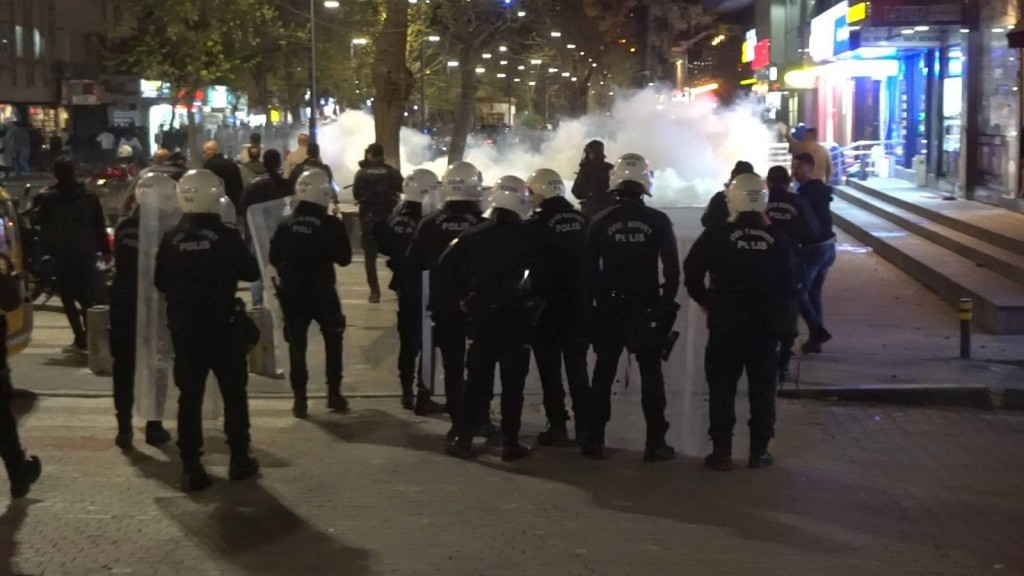Darwish said that immigration agents in Turkey accused him of forging the Qatari visa he presented at approximately 10 p.m. Friday night while transiting through the airport and summoned police. He said an airport employee hit him on the leg and that he was ultimately put on an early morning flight back to Geneva.
“We are disturbed by Turkish authorities’ detention of Mazen Darwish, who held a valid Qatari visa to speak at IPI’s World Congress in Doha, and by the alleged assault he suffered,” IPI Executive Board Chair John Yearwood said today on behalf of the Board. “Such treatment is completely unwarranted and unacceptable, and we demand that Turkish authorities explain their actions.”
The journalist – who moved to Berlin after Syria released him from prison in 2015 and who was travelling on documents issued by Germany – said that the Turkish authorities refused to contact Qatar’s foreign ministry to confirm his visa’s authenticity. When he sought to file a complaint over the treatment, he said, Turkish authorities suggested he should instead board the next flight to Geneva, as filing a complaint would require them to transport him outside the airport to a police station and a hospital, respectively, significantly extending his stay in the country.
Darwish was in Geneva earlier this week in connection with peace talks taking place between the Syrian government and elements of the opposition.
IPI named Darwish a World Press Freedom Hero in 2015 for his activities in defence of human rights and media freedom in Syria – activities that continued even after he was imprisoned in 2012 on allegations that his documentation of human rights abuses constituted support for terrorism. He was scheduled to speak yesterday at IPI’s World Congress, which is being held in partnership with Al Jazeera, as part of a town hall meeting titled “Covering the Arab World – Documenting Change”.
Darwish, who heads the Syrian Centre for Media and Freedom of Expression (SCM), said the reasons for his detention were unclear, as Turkish authorities allowed him to transit through Ataturk Airport in November 2015 when, following his release from prison, he flew from Beirut to Berlin, also on German travel documents.
He speculated that it could be related to the SCM’s criticism of Turkey’s response to the murder of Syrian journalist Naji Jerf on Dec. 27, 2015 in Gaziantep near Turkey’s border with Syria.
Jerf – chief editor of the independent monthly Hentah and a filmmaker who documented atrocities committed by the Islamic State group – was gunned down in broad daylight in front of a building that housed the offices of opposition media outlets. He had fled Syria in the face of threats by the group and his death came just days before he and his family were scheduled to travel to France, where Jerf had applied for asylum.
Although Turkish authorities promised an investigation, no suspects have been identified or apprehended. Purported representatives of the Islamic State group claimed responsibility for the killing in a video titled “Escaping won’t do you any good” that was posted online on March 8. However, the authenticity of that claim is unclear.
*This statement was revised to indicate that Darwish was stopped on the evening of March 18.



